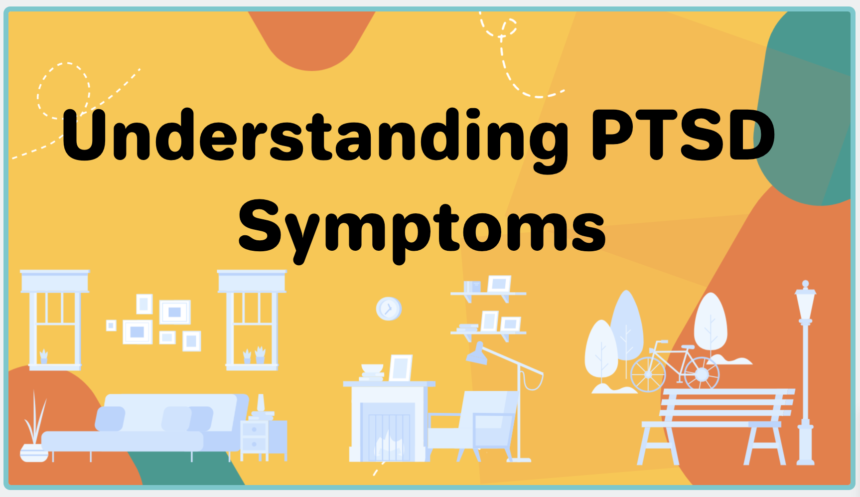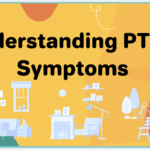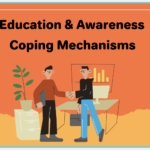Avoidance behaviour, particularly in the context of post-traumatic stress disorder (PTSD), refers to a range of actions taken by individuals to evade reminders of traumatic experiences. It serves as a psychological mechanism aimed at reducing distress caused by memories, thoughts, or external cues related to the trauma. This behaviour can manifest in various forms, including avoidance of people, places, activities, or even conversations that could trigger memories of the distressing event.
Post-Traumatic Stress Disorder (PTSD) is a mental health condition that can develop after an individual experiences or witnesses a traumatic event. This disorder is characterized by a range of symptoms, including intrusive thoughts, heightened arousal, and avoidance behaviors, which significantly impact daily functioning and quality of life. Particularly among military veterans in the UK, PTSD is a prevalent issue that demands attention and understanding.
The causes of PTSD are multifaceted, but they primarily stem from exposure to traumatic experiences. For veterans, these experiences often include life-threatening situations, combat, or the witnessing of severe injuries and death. The psychological repercussions of such events can lead to intense feelings of fear, helplessness, and horror. Physiologically, these traumatic experiences may disrupt normal brain function, affecting areas involved in memory and emotion regulation, resulting in a state of persistent stress and anxiety.
The prevalence of PTSD among military personnel is noteworthy. Studies suggest that around 10% to 20% of veterans may experience PTSD at some point after their service, which is higher than the general population’s rate of approximately 4%. This elevated risk highlights the need for effective mental health support and treatment tailored to the unique experiences of veterans.
A key symptom of PTSD is avoidance behavior, where individuals actively try to evade reminders of the trauma. This can manifest as avoiding conversations about the event, steering clear of situations that may trigger memories, or even distancing oneself from family and friends. Such behaviors, while may offer short-term relief from distress, can lead to social isolation and further exacerbate the psychological burden of PTSD. Understanding these dynamics is essential for developing targeted interventions that can help individuals cope with this complex condition.
What is Avoidance Behaviour?
The underlying psychology of avoidance behaviour is rooted in the natural human instinct to protect oneself from psychological pain. For veterans who have experienced traumatic events, the immediate urge to avoid reminders—whether they be specific locations, certain sounds, or discussions about war—can feel imperative. This avoidance can provide temporary relief from anxiety; however, it often leads to long-term detrimental effects on an individual’s mental health and overall well-being.
Common situations that individuals with PTSD might avoid can include returning to places where the traumatic event occurred, refraining from engaging in social situations, or steering clear of activities they once enjoyed. The avoidance is not merely a preference but can become a compulsive behaviour that severely limits one’s ability to function effectively in daily life.
As avoidance behaviour serves as a coping strategy for managing distress, it offers both psychological “safety” and paradoxically perpetuates the cycle of trauma. By evading reminders, individuals may initially feel a sense of control over their anxiety; however, this behaviour ultimately prevents them from confronting their experiences and seeking healing. Understanding avoidance behaviour in PTSD is crucial for developing effective therapeutic interventions that encourage individuals to confront their fears and integrate their experiences into their lives, ultimately leading to recovery and improved mental health.
Manifestations of Avoidance Behaviour
Avoidance behaviour is a common manifestation of post-traumatic stress disorder (PTSD), particularly among military veterans. This behaviour emerges as a coping mechanism in response to the distressing symptoms associated with the trauma experienced during service. One significant aspect of avoidance behaviour is emotional avoidance, where individuals struggle to confront or express their feelings related to past experiences. Veterans may find themselves suppressing emotions, leading to a sense of detachment and disconnection from their own emotional states.
Moreover, behavioural avoidance is frequently observed in veterans dealing with PTSD. This can manifest in several ways, such as steering clear of social interactions or isolating oneself from family and friends. Many veterans may avoid gatherings, fearing that social settings will trigger memories of traumatic events or provoke feelings of anxiety. For instance, a veteran might decline invitations to reunions or celebrations, choosing instead to remain at home to prevent the onset of distressing memories.
Another form of avoidance behaviour involves avoiding specific locations or situations that are reminiscent of traumatic experiences. For example, a veteran who served in a combat zone may avoid places that resemble the environment of their deployment, such as crowded areas or certain urban settings. This avoidance can limit their ability to navigate their community or engage in normal daily activities, impacting their overall quality of life.
Additionally, veterans often refrain from discussing their experiences, which can hinder communication and understanding within relationships. This reluctance to open up not only prevents healing but can also strain relationships with loved ones who may feel excluded or helpless. The combination of emotional and behavioural avoidance creates barriers to social integration, making it challenging for veterans to connect meaningfully with their peers and communities. Hence, understanding these manifestations is crucial in providing adequate support and fostering recovery.
The Cycle of Avoidance and PTSD Symptoms
Avoidance behavior is a common response among individuals dealing with post-traumatic stress disorder (PTSD), particularly in veterans. This behavior can initiate a detrimental cycle that significantly exacerbates the symptoms of PTSD. When faced with reminders of traumatic experiences, individuals often engage in avoidance as a coping mechanism. This can manifest as steering clear of specific locations, discussions, or even memories related to the trauma. While avoidance may provide short-term relief from anxiety, it ultimately heightens the overall distress associated with PTSD.
This cyclical relationship between avoidance and PTSD leads to increased isolation. As veterans withdraw from activities or interactions that remind them of their trauma, they may find themselves increasingly cut off from social networks and supportive relationships. This isolation can further intensify feelings of loneliness and despair, creating a sense of emotional numbness that permeates various aspects of their lives. Consequently, the inability to face their trauma can hinder emotional processing and resilience, perpetuating the symptoms of PTSD.
Moreover, the avoidance of distressing situations reinforces a distorted belief system regarding their safety and control over their environment. Individuals may fall into the trap of believing that by avoiding certain triggers, they are protecting themselves. Unfortunately, this only serves to solidify the trauma’s grip on their psyche, leading to an increased sense of helplessness. By continuously avoiding these triggers, veterans may inadvertently prevent themselves from confronting their trauma, which is essential for healing and recovery.
In this context, the cycle of avoidance fosters a worsening of or even new symptoms related to PTSD. Anxiety, depression, and heightened reactivity to stress can become more profound, affecting everyday life. Understanding this cycle is a crucial step toward breaking free from avoidance behaviors and finding effective pathways to recovery.
Impact on Daily Life and Well-being
Avoidance behaviour, a common symptom among individuals with Post-Traumatic Stress Disorder (PTSD), significantly impacts veterans’ daily lives and overall well-being. This maladaptive strategy, wherein veterans consciously steer clear of reminders of their trauma, can infiltrate various aspects of life, from employment to personal relationships. The consequences of avoidance are often pervasive, leading to a decline in quality of life.
Employment is one area where the ramifications of avoidance behaviour can be profoundly felt. Veterans may find it challenging to attend work or engage fully due to the stressors that daily responsibilities might evoke. According to a study by the Department of Veterans Affairs, nearly 30% of veterans with PTSD report difficulties maintaining stable employment. This can result in financial strain and a diminished sense of purpose, further exacerbating feelings of isolation.
In terms of relationships, avoidance behaviour tends to create emotional distance between veterans and their loved ones. As veterans attempt to shield themselves from painful memories, they may unintentionally withdraw from social interactions, leading to strained family dynamics and frayed friendships. For example, a veteran named John shared that his reluctance to discuss his experiences in combat created a chasm between him and his spouse, who felt increasingly lonely and disconnected.
Mental health is invariably affected as well. Beyond the immediate symptoms of depression and anxiety that often accompany PTSD, avoidance can lead to the development of other mental health conditions, such as substance abuse disorder, as veterans may seek relief in unhealthy coping mechanisms. Statistics reveal that around 15% of veterans with PTSD also struggle with substance use issues, highlighting a concerning overlap.
Physical health cannot be overlooked either. The cumulative effects of stress and avoidance behaviour can manifest as chronic health issues, including cardiovascular disease and obesity. The interplay of physical and mental health challenges underscores the urgent need for comprehensive, therapeutic intervention for veterans experiencing PTSD. It is essential to address avoidance behaviours early to improve overall well-being and encourage veterans to seek help proactively.
Coping Mechanisms and Treatment Options
Addressing avoidance behaviour in veterans suffering from post-traumatic stress disorder (PTSD) can be pivotal for their recovery journey. Various coping mechanisms and treatment options have been found to be effective, often rooted in evidence-based practices. Among the most recognized approaches is Cognitive Behavioral Therapy (CBT). This psychological intervention helps individuals modify negative thought patterns and behaviours associated with PTSD, thereby reducing the tendency to engage in avoidance behaviours.
CBT utilizes techniques such as exposure therapy, where veterans confront and process traumatic memories in a safe environment, allowing them to reduce emotional distress and develop healthier coping strategies. Through gradual exposure, individuals learn that they can manage their fears, diminishing the powerful grip of avoidance.
Another valuable coping mechanism is the practice of mindfulness. Mindfulness techniques encourage veterans to remain present, promoting a state of awareness that lessens anxiety and enhances emotional regulation. Strategies such as meditation, deep breathing exercises, and body scanning can help individuals connect with their feelings without reverting to avoidance. Research has shown that mindfulness interventions can significantly lower symptoms of anxiety and depression, which are commonly exacerbated by avoidance behaviours.
Support groups also play a critical role in the recovery process. Engaging with peers who have shared experiences can provide veterans a sense of camaraderie and understanding that alleviates feelings of isolation. These groups often facilitate discussions on common challenges related to PTSD and offer practical strategies to manage avoidance behaviours. Establishing connections within these supportive environments can prove beneficial for emotional healing.
In summary, veterans facing avoidance behaviour due to PTSD can explore a variety of coping mechanisms, including therapy focused on Cognitive Behavioural Therapy, mindfulness practices, and support group participation. By combining these approaches, individuals can foster resilience and work through their challenges more effectively.
The Role of Family and Community Support
Family and community support play an indispensable role in the lives of veterans struggling with avoidance behaviour as a consequence of post-traumatic stress disorder (PTSD). Understanding the intricacies of PTSD is essential for loved ones to provide effective assistance. When family members are informed about the condition, they become better equipped to identify the symptoms and recognize the struggles their veteran faces. Avoidance behaviour may manifest itself as withdrawal from social situations, reluctance to engage in activities, or a general disinterest in life’s pleasures. By fostering an environment of empathy and awareness, families can help break down these barriers.
Encouragement from family members to participate in daily activities or social situations can be instrumental in promoting engagement. However, it is critical that this support is patient and non-judgmental. Veterans may require time to adapt, and pushing them into uncomfortable scenarios can inadvertently exacerbate their symptoms. By gently urging participation in social events or recreational activities, loved ones can help them gradually reintegrate into a community that understands their struggles.
Furthermore, establishing an inclusive community that recognizes the unique challenges faced by veterans is vital. Community support programs or support groups offer a safe space for veterans, where they can share experiences and coping strategies with peers who have faced similar challenges. These environments can significantly help in reducing feelings of isolation often experienced due to avoidance behaviour.
Additionally, families can engage in activities that promote wellness and healthy coping strategies, such as physical exercise, mindfulness practices, or creative endeavors. These initiatives not only encourage bonding but also serve as strategies to combat the debilitating effects of PTSD. Overall, a collaborative effort from family and community can play a transformative role in the journey of veterans toward healing and recovery.
Stigma and Misconceptions about Avoidance Behaviour
Avoidance behaviour, a prevalent symptom of Post-Traumatic Stress Disorder (PTSD), often carries significant stigma and numerous misconceptions that can hinder an individual’s willingness to seek the necessary help. This avoidance may manifest as a reluctance to engage in activities reminiscent of the traumatic experience, leading to isolation and an exacerbation of symptoms. Unfortunately, many individuals misunderstand this behaviour, attributing it to personal weakness or a lack of resilience, rather than recognizing it as a legitimate response to trauma.
The impact of societal stigma is profound, particularly among veterans who may feel immense pressure to conform to ideals of strength and self-reliance. The misconstrued perception that avoidance indicates a failure to cope can deter veterans from pursuing mental health treatment. Consequently, they may endure their struggles in silence, further perpetuating the cycle of isolation and emotional distress. This stigma is not just a personal burden but also a societal failing that ultimately undermines mental health awareness and care.
Moreover, misconceptions often extend to the understanding of PTSD itself. Many believe that PTSD predominantly affects combat veterans, while in reality, it can affect anyone who has experienced trauma. The failure to recognize the universality of this condition can lead to further alienation, as affected individuals may feel misunderstood or marginalized. Educating the public about the realities of PTSD and its symptoms, such as avoidance behaviour, is crucial for fostering an environment of empathy and support.
Increasing awareness and understanding can facilitate acceptance, allowing individuals grappling with PTSD to seek the help they need without fear of judgement. Education plays a vital role in combating the misconceptions surrounding avoidance behaviour, promoting a more informed dialogue about mental health and reinforcing the idea that seeking help is a sign of strength, not weakness.
Conclusion: Moving Forward
In conclusion, addressing avoidance behaviour is crucial for veterans dealing with post-traumatic stress disorder (PTSD). This often overlooked aspect of PTSD can significantly hinder an individual’s path to recovery. Veterans may exhibit various forms of avoidance, ranging from evading reminders of traumatic events to distancing themselves from loved ones and social situations. Recognising these behaviours is the first step in helping affected individuals regain control over their lives.
Throughout the discussion, various coping strategies and therapeutic interventions have been highlighted. These approaches emphasize the necessity of supportive environments where veterans feel safe to confront their fears and associated trauma. Encouraging open dialogues regarding mental health within communities is paramount for reducing stigma and fostering understanding. This emphasis on dialogue not only aids veterans in their recovery journeys but also inspires others to seek help, promoting a broader culture of acceptance around mental health issues.
Furthermore, advocacy for mental health resources remains essential. Policymakers and community leaders must continue to prioritise access to mental health services tailored specifically for veterans. This includes offering specialised treatment options that address both avoidance behaviour and PTSD symptoms, thereby improving the overall well-being of these individuals. The critical need for mental health professionals trained in the unique experiences and challenges faced by veterans further underscores the efforts required within this domain.
The journey towards recovery may be complicated, but it is not insurmountable. With proper support, veterans can learn to navigate their struggles with PTSD and avoidance behaviour. It is imperative that society collectively commits to this cause, ensuring that veterans receive the care and understanding they deserve. Together, we can foster a supportive environment that empowers veterans to confront their challenges and ultimately thrive in their lives.





